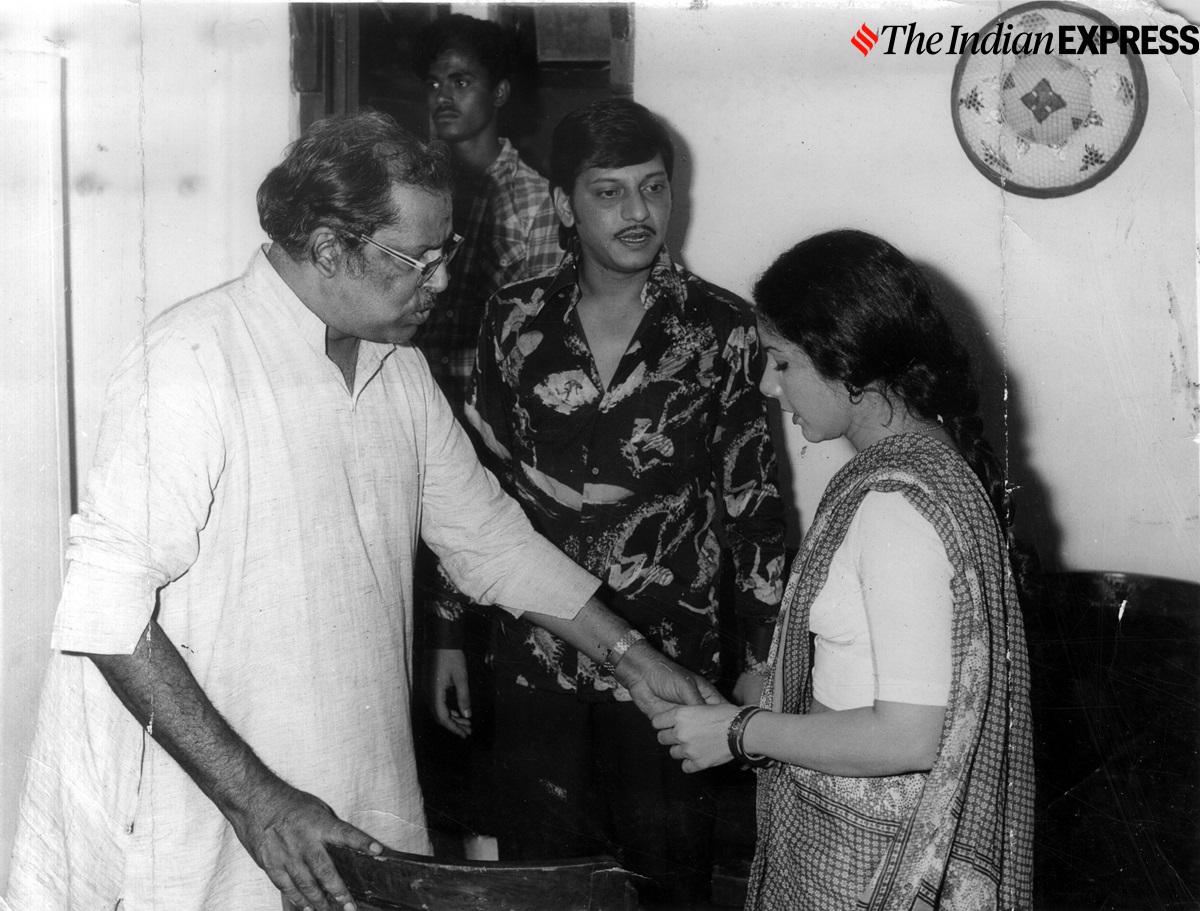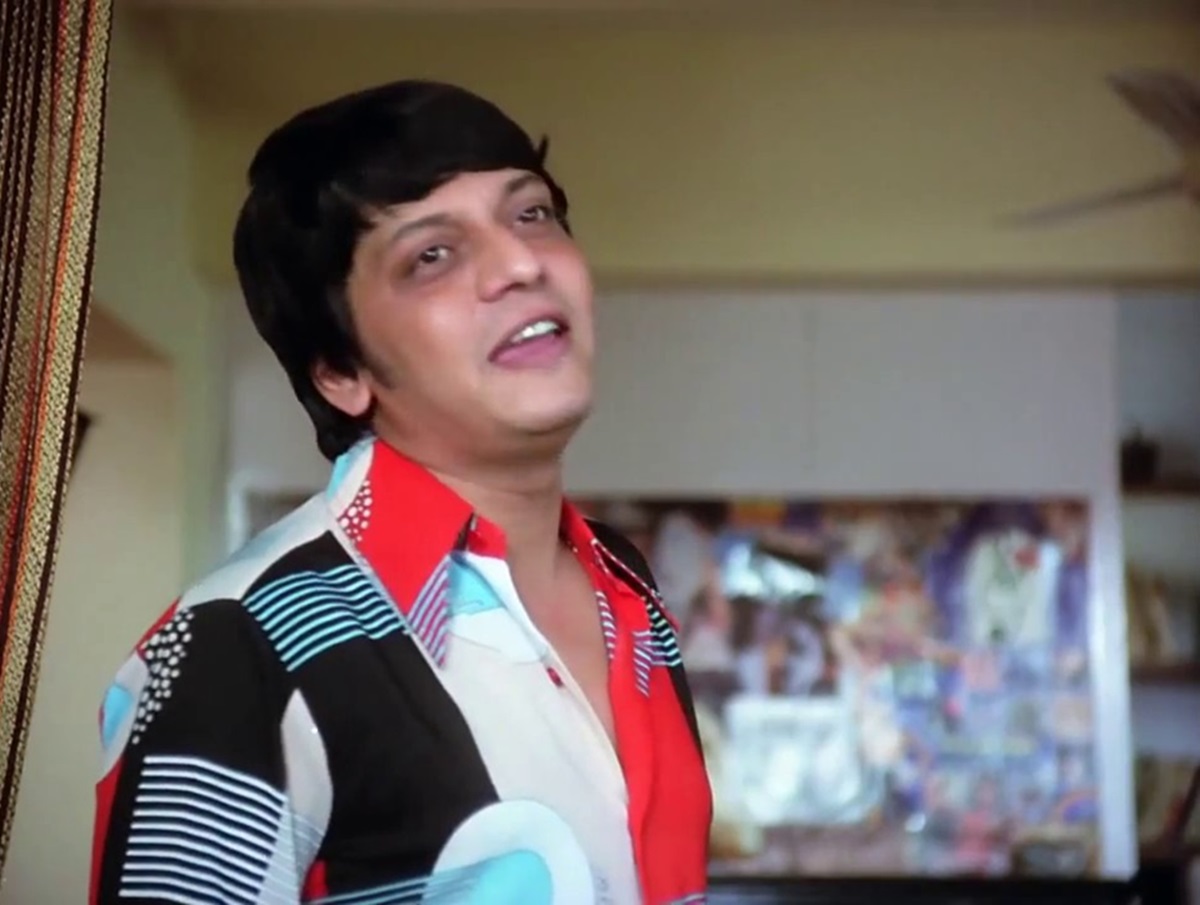Hindi cinema viewers are trained to believe that movies can only work if there is a certain suspension of disbelief. The real world around them could be ugly and harsh, but movies are a means of escape. Of course, not all movies are made following the same belief but once in a while, when times are hard and one needs a break, there’s nothing like watching a light-hearted movie that doesn’t offend you in any way and entertains you even if you can recall it scene-by-scene. Director Hrishikesh Mukherjee was a master at making such movies, and served a few such titles where he asked you to step into his universe and not ask many questions, and the audience surrendered happily. One such film was Gol Maal (1979) starring Amol Palekar and Utpal Dutt, which asks you to believe that a supposedly learned man can be fooled by just a fake moustache.
Here, Amol Palekar’s Ramprasad Sharma pretends to be a geeky, kurta-wearing fellow just so he can get a job at Bhavani Shankar’s (Utpal Dutt) office. He scores the job but he has to put up a sanskari performance everyday and also spout chaste Hindi. When Bhavani Shankar spots him at a football match, Ramprasad just makes up the first lie he can think of, ‘It was my twin brother Lakshman’. The lie is laughable but in that moment, the film makes you buy into the hilarity of the situation and without asking many questions, you believe that Ramprasad will pull this off.
Hrishi da, as he was fondly called, started making this film after his 1977 film Alaap, starring Amitabh Bachchan, failed miserably. The film had him playing a classical singer who gives up his riches for his music. In an interview with Screen, Mukherjee had shared, “I was completely shattered by it and went through depression for several months. To snap out of it, I decided to make an out and out comedy.” By his own admission, Hrishikesh Mukherjee was an “escapist” which is why he liked to make optimistic films that focused on the silver lining. “Life is so short. There is so little time, to love, to make friends. I find there is no point in making a film where you show that love is degenerating, or a friendship is breaking, I don’t feel like making those films. My attitude towards life is what I want to share with people,” he told Rediff.
 Hrishikesh Mukherjee (left), Amol Palekar (centre) and Manju Singh on the set of Gol Maal. (Photo: Express Archives)
Hrishikesh Mukherjee (left), Amol Palekar (centre) and Manju Singh on the set of Gol Maal. (Photo: Express Archives)
This attitude of the director surely reflects in the film when its characters start making up fake mothers, twin brothers separated by a moustache, and coming up with a Gandhian reason for wearing short kurtas. None of it is relatable, or even remotely realistic but Mukherjee makes you buy into this universe where people resided in places that look like lived-in homes, and wear clothes that could be bought off the rack. And of course, the performances by the film’s two lead characters, played by Palekar and Dutt, play a huge role in the same.
Mukherjee was famously known for not explaining his scenes to his actors. He once scolded Dharmendra and Amitabh Bachchan on the set of Chupke Chupke because they asked for the story details of the scene being shot. “You guys, if you had the sense for the story you wouldn’t be playing heroes in films,” he reportedly told them, as shared by Asrani in a PTI interview. But, such was not the case with Amol and Utpal. Hrishi da called Amol ‘Amu’, and explained everything that he needed to know about the movie. “Generally, I never discuss the artist’s role with them before filming begins but in Amol’s case, I did. I knew he always tried to get under the skin of the character, and being an intelligent actor, he came up with valid suggestions,” Mukherjee told Screen.
 Amol Palekar as Lakshmanprasad Sharma in Gol Maal.
Amol Palekar as Lakshmanprasad Sharma in Gol Maal.
Same was the case with Utpal, who he had worked with in Guddi as well. Mukherjee described him as a “master improviser” who could make a scene hilarious by adding his own touch to it. Like the scene towards the end when he finds out that both Ram and Lakshman are the same man, he runs around the house trying to find him with a gun in his hand. There is a moment where he looks inside a tiny flower pot, with rage in his eyes. This moment came from Dutt and became the stand out moment of the scene. “He listened patiently to my explanations and if he had suggestions, he promptly voiced them. Many times he performed a particular scene in his own style. He was a master improviser who acted spontaneously,” Mukherjee shared.
Amol once shared that the reason why Hrishikesh never explained the story to most actors was because he felt that they weren’t giving him their time, but that wasn’t the case with Amol. The actor told Rajshri Unplugged that it was this reputation of the director which made him think that he would refuse the offer to star in Gol Maal. “I had heard stories about him, how he would never give the full picture to those working with him, and I said I can’t work like that. So I wanted to say no initially,” he said. But eventually, when they met, the director gave him a full narration. He recalled, “After his narration, I laughed and told him honestly ‘I had come here thinking I would turn your offer down’ and gave him my reason. He, in turn, explained that he doesn’t narrate scripts to those who cannot give him their time.”
Advertisement
Hrishikesh Mukherjee demanded a certain amount of attention from his actors but in the case of his audience, he knew how to command their attention and make them a part of his world, even if it was just for a few hours.
"Idea" - Google News
July 01, 2023 at 09:30AM
https://ift.tt/0ykvwr7
Hrishikesh Mukherjee’s Gol Maal was the director’s idea of escapism that snapped him out of depression - The Indian Express
"Idea" - Google News
https://ift.tt/1pax9E4
https://ift.tt/U1i4VQu
Bagikan Berita Ini














0 Response to "Hrishikesh Mukherjees Gol Maal was the directors idea of escapism that snapped him out of depression - The Indian Express"
Post a Comment